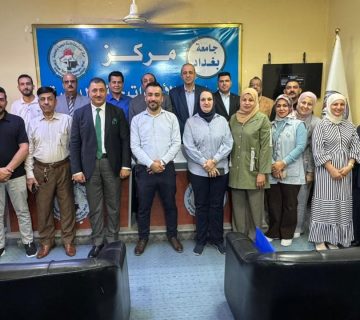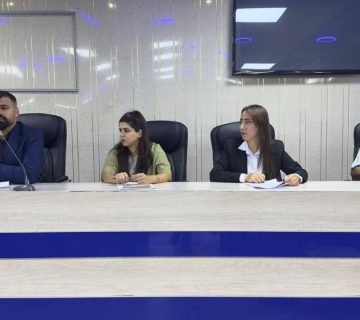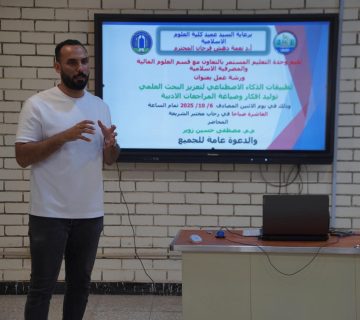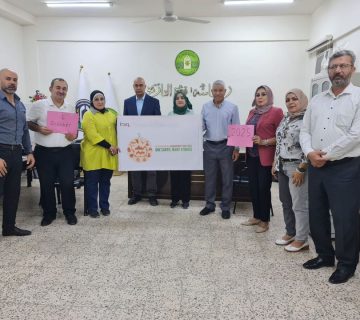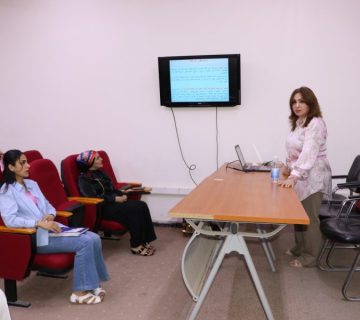The College of Engineering, Department of Computer Engineering at the University of Baghdad, held a seminar entitled “Children and Digital Time: Improving Health in the Digital World” delivered by Assistant Professor Islam Muhammad Ahmed. The seminar aimed to point out the importance of cooperation between parents and educational authorities to reduce the risks of using smart devices and work to benefit children from them safely and effectively.
The seminar included a discussion of a number of themes related to the increase and spread of smart devices among children around the world and its impact on them, as many of them spend most of their time inside the virtual worlds of these devices. It has been pointed out that the main reason for the use of these devices by children is to communicate with others because of the lack of communication with peers or in order to communicate with oneself by building a world in which the child feels safe and despite the many benefits of using electronic devices such as supporting creativity and helping self-expression, but their use is not without risks and challenges, the most important of which is poor physical health and exposure to all kinds of information, and the dangerous relationships available through it.
The symposium came out with a number of recommendations, most notably determining the times of use of smart devices daily for children, as it is usually recommended for children between the ages of 5 to 17 years to use these devices at a rate of two hours a day, installing useful applications on children’s devices of an educational nature and intellectual activity, and using the method of dialogue with the child to make him understand why some applications are not allowed and at the same time encouraging the use of allowed applications, working to activate parental control in children’s devices, and encouraging children to playing games or other activities such as physical movement games and that parents are the best role models in the way to use these devices.




